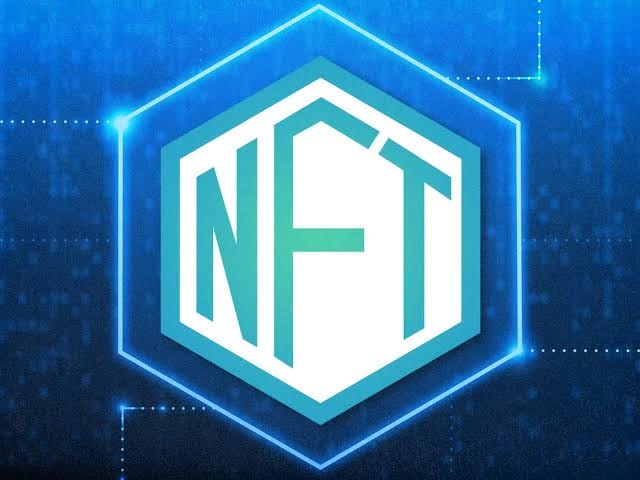An ultimate guide to profitable non-fungible tokens
06/05/2022
NFTs are revolutionizing the way we think about digital property and data ownership. They present an innovative way to handle unique assets on the blockchain, and they have incredible potential for use in a variety of industries.
This article will discuss what NFTs are, the advantages and disadvantages of NFT investing, what types of NFTs are most profitable, and strategies for developing a profitable NFT business.
We’ll also explore some of the challenges faced by the NFT market and how these might be overcome. With so much potential for growth in this area, it’s important to stay up-to-date on all things NFT!
What are non-fungible tokens (NFTs)?

Simply put, NFTs are digital assets that cannot be replicated. They can represent anything from game items and collectibles to real-world commodities like gold or even intellectual property such as patents or copyrights.
NFTs first appeared on the Ethereum blockchain in 2017 with the launch of CryptoKitties, a digital collectibles app based on the ERC721 standard. Since then, hundreds of different types of NFTs have been launched on different blockchains.
These tokens have become increasingly popular due to their ability to provide ownership of unique assets and their investment potential.
Why invest in NFTs?
So why should you consider investing in NFTs? Here are just a few of the advantages NFTs offer:
1. As digital assets, they can be easily transferred or traded between users without any middlemen or regulatory restrictions. This makes it easier to liquidate your digital assets in exchange for fiat currency without going through a traditional exchange platform.
2. Unlike traditional securities, each token you own is unique and has its own value based on real-world data such as supply and demand at the time of purchase. This means that you won’t have to worry about fluctuating market prices affecting your investment portfolio.
3. NFTs provide asset ownership and autonomous rights management by verifying transactions via smart contracts on the blockchain. This essentially allows you to own or trade your assets without having to worry about loss or theft.
4. NFTs can be used for gaming, fundraising, and other uses that aren’t possible with traditional securities and virtual currencies like Bitcoin. For example, some companies have developed “crypto-collectibles,” each of which is unique and has its own “characteristics.” This is similar to how physical collectibles each have a different look and feel.
Drawbacks to NFT investing
So are there any downsides to investing in NFTs? Actually, yes!
One main drawback is the relatively limited number of platforms available compared to traditional securities such as stocks or bonds. However, this is changing with the launch of more platforms like BlockX Labs and OpenSea, which provide centralized marketplaces for NFTs.
Another concern is the lack of regulation in many token markets due to their decentralized nature. This could result in some users engaging in illegal activities such as money laundering or fraud. But again, this issue will likely be addressed as more governments recognize blockchain-based assets like NFTs.
Despite these drawbacks, investing in non-fungible tokens has several advantages over traditional securities and virtual currencies. They offer a lucrative and still-new investment opportunity that is well worth exploring.
Are some NFTs more profitable than others?
There is no definitive answer to this question, as the profitability of different NFTs depends on a number of factors, including market demand and regulatory policies.
However, some types of NFTs are generally considered more profitable than others due to their unique features and potential applications. These include crypto-collectibles like digital game assets or rare artwork, NFTs that provide rights management or governance over real-world assets, and other types of NFTs that are difficult or impossible to replicate, such as patents or copyrights.
Ultimately, the most profitable NFTs offer a combination of high market demand and potentially significant value over time.
How to make your NFT business profitable

There is no one-size-fits-all formula for making your NFT business profitable, as the profitability of different businesses depends on many factors. However, some key considerations for increasing profitability include:
1. Researching and understanding the target market for your NFTs: Ensure that there is sufficient demand for your NFTs among your target market. This could involve doing surveys or focus groups to better understand how users feel about your NFTs and their potential applications. Understanding your target market will also help you tailor your product and marketing strategies to potential consumers.
2. Developing a marketing strategy: As with any business, your market strategy should increase awareness and interest in your NFTs among potential buyers. Your strategy could include advertising on social media platforms, collaborating with influencers or other businesses, or using paid search engine optimization (SEO) techniques to improve your visibility online.
3. Creating a user-friendly platform or marketplace for your NFTs: By making your own marketplace, you can avoid the costs of listing your NFTs on an existing marketplace like OpenSea. However, remember that buyers are already familiar with the major marketplaces, so there are advantages to listing your NFTs on such marketplaces as well.
4. Setting competitive prices for your NFTs: It’s crucial to set prices that reflect the value your NFTs offer to buyers while still allowing for a reasonable profit margin. This may require some trial and error to get right. You might also consider using some of the various online tools that can help with price discovery, such as CryptoCompare’s NFT Prices tool.
5. Staying up-to-date on trends in the NFT industry: By staying informed, you can adjust your business strategy in response to current trends. To stay informed, keep an eye on new platforms and marketplaces that may provide new opportunities, and be aware of regulatory changes that could impact your business.
If you are serious about making your NFT business profitable, then be prepared to invest the time and resources necessary to achieve your goals. With careful planning and perseverance, you can create a sustainable and successful NFT business that provides valuable benefits to buyers and stakeholders alike!
Chat with the expert NFT promoters and marketers at Mooning
Sure, all the examples of NFT promotions we listed are from global brands with endless coin to throw at their campaigns. But you really don’t need a crazy-high budget to see some seriously incredible outcomes – as long as you know the delicate intricacies of building a killer NFT marketing strategy!
If not, no worries – Mooning is here to take care of everything for you and make sure you see the most amazing ROI you’ve ever seen before. Our team has the knowledge and experience to promote your NFTs in order to deliver maximum awareness and interest, driving the sales prices up sky-high and beyond.
We provide a full suite of expert NFT marketing services and go above and beyond for every one of our clients to ensure only the best results. Our team will help with everything from minting, listing and selling, NFT creator sourcing, community management and campaign conceptualisation.
So get in touch with us now on 1300 818 435 or message us online.





